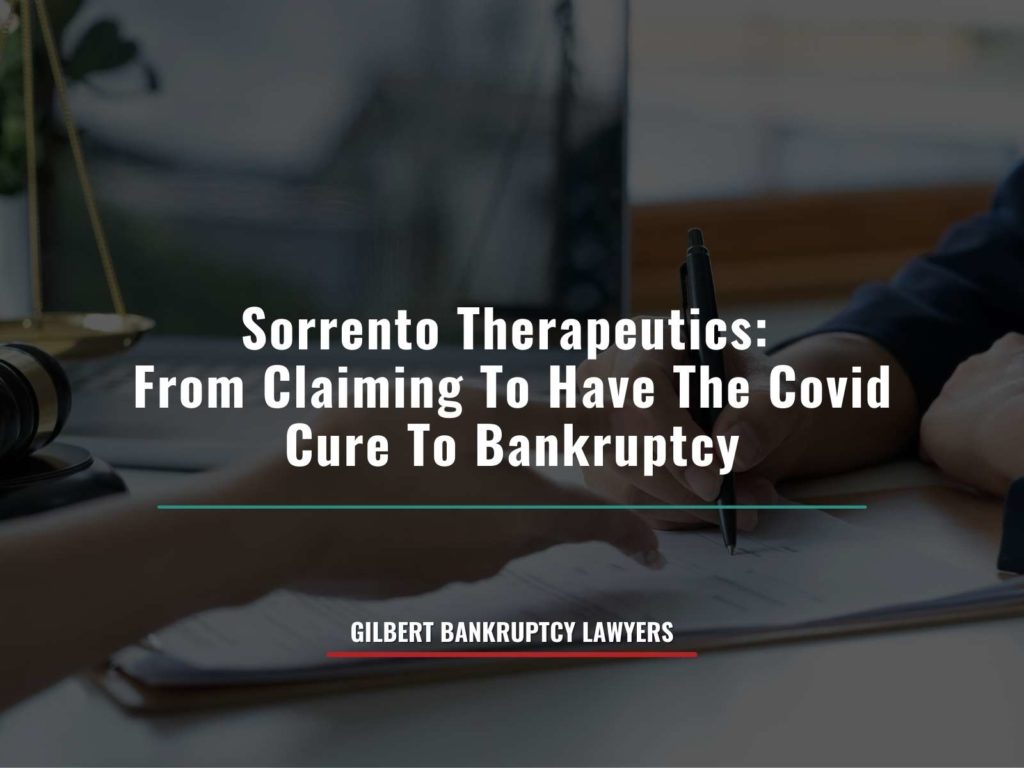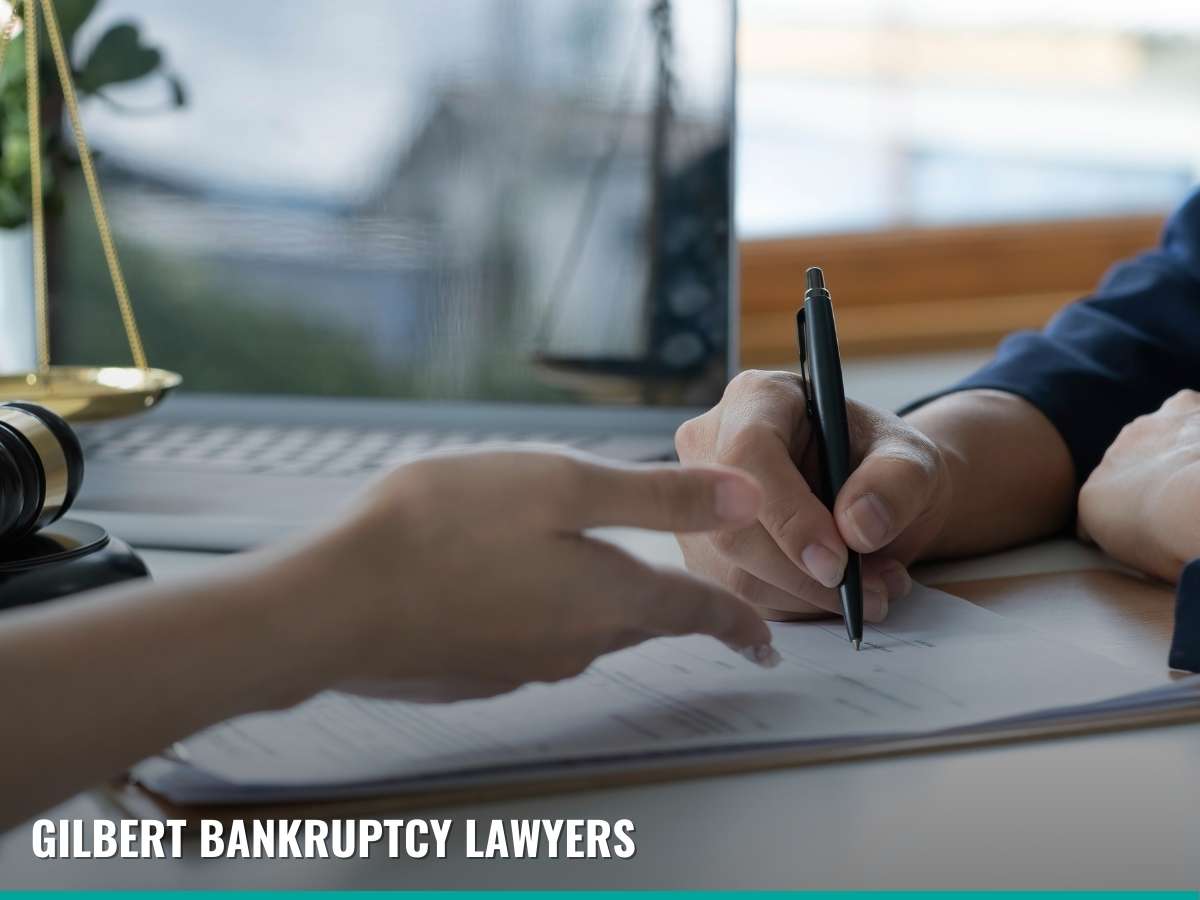With COVID-19 taking the lives of millions and essentially bringing the entire world to a standstill, biotech companies were racing for a vaccine, if not a cure, for the illness. Undoubtedly, the first company to come up with a sure-fire cure for COVID-19 would be showered with fame, fortune, and awards- plus the benefit of saving countless lives. Sorrento Therapeutics made waves when they claimed to have the cure as early as May 2020. While things have gotten mostly back to normal since the onset of the pandemic, COVID-19 is still spreading and there is no cure as of yet. Nearly three years later, on February 13, 2023, Sorrento Therapeutics declared Chapter 11 bankruptcy. Sorrento’s initial claim that they had the cure for COVID-19 caused their stock value to skyrocket by 243 percent. Their bankruptcy filing nearly three years later caused their stock value to plummet by 61 percent. Now, the company’s future- just like the cure for COVID- remains unclear.
What Is Chapter 11 Bankruptcy?
When people hear that a business has declared bankruptcy, they may assume that they are shutting down operations. This may be the case in chapter 7 bankruptcy, but a Chapter 11 bankruptcy debtor is not forced to shut down their business. Chapter 11 bankruptcy can be used by individuals or by businesses, but because of its expense and complexity, is usually used when there are substantial funds on the line or when the business wants to stay open. The debtor’s top creditors will be informed of the filing and form a committee. That committee will oversee major financial decisions and vote on the debtor’s proposal of how to address the debt. If the committee rejects the debtor’s proposal, the committee can create its own proposal. The debtor may need to sell off inventory or equipment, majorly downsize, convert shares, find a new lender, or find a different solution to their debt issue. Besides major decisions, the business will be able to operate as usual while the bankruptcy is pending. The debtor will be protected from lawsuits and other actions by their creditors while the automatic stay is in good standing.
Can a Small Business Owner File Chapter 11 Bankruptcy?
As you might expect, there are significant costs for lawyers, financial experts, and other expenses that a typical person probably can’t afford in Chapter 11 bankruptcy. However, there are special provisions available for small business owners. To qualify for a small business Chapter 11 bankruptcy, the debtor’s liabilities can’t exceed $3,024,725 and at least half of that must be from business activity. A small business Chapter 11 debtor will need to attend an initial debt interview with their bankruptcy trustee. The trustee will explain the rules and obligations of Chapter 11 bankruptcy to the debtor, as well as analyze the business’s viability and proposal to deal with debt. The trustee will monitor business activities, placing a closer lens over a small business Chapter 11 debtor than a standard Chapter 11 debtor.
Small business Chapter 11 bankruptcy cases proceed more swiftly than typical Chapter 11 bankruptcies. The debtor has the sole opportunity to submit debt proposals during the first 180 days of the case. The court can also extend the exclusivity period to 300 days if it is deemed appropriate. A small business Chapter 11 debtor may not need to file a separate disclosure statement that is required by standard Chapter 11 bankruptcy debtors.
Should I Use Chapter 11 Bankruptcy To Protect My Financial Interests?
Chapter 11 bankruptcy is the least commonly filed type of bankruptcy in Phoenix. In 2022, there were 6,065 total bankruptcy cases filed in Phoenix. Of those 6,065 cases, 4,933, or 81.3% of those cases were filed under Chapter 7. Chapter 13 bankruptcy accounted for 1,082, or 17.8% of that total. Only 50 cases, or less than 1%, were filed as Chapter 11 bankruptcy cases. Statistically speaking, you are more likely to find Chapter 7 and Chapter 13 more efficient ways to relieve your debt.
As stated above, more than 4/5 of bankruptcy cases filed in Phoenix are Chapter 7 bankruptcy cases. Chapter 7 bankruptcy is simpler, and faster, and could come with more benefits than either Chapter 13 or Chapter 11. Chapter 7 clears most types of unsecured debts, and the debtor can protect many of their assets using state bankruptcy exemptions. However, a business owner that files for Chapter 7 bankruptcy must shut down their business. This could seem like an extremely unappealing option but isn’t entirely unworkable for some small business owners. If the business doesn’t have substantial inventory or assets, it can simply be opened under a similar name after the bankruptcy has been discharged. There are also income limitations for Chapter 7 bankruptcy that could disqualify a debtor from filing.
Chapter 13 bankruptcy is only available to sole proprietorships in a business context, but usually can be used by individuals who don’t qualify for Chapter 7 bankruptcy. It reorganizes the debtor’s liabilities into a payment plan that lasts either three or five years. It allows the debtor to pay off secured debts and priority debts that would remain unaffected by a Chapter 7 bankruptcy filing. A debtor’s liabilities can’t exceed $465,275 in secured debts and $1,395,875 in unsecured debts to qualify for Chapter 13 bankruptcy. The amount the debtor pays each month will be based on their debts and their disposable monthly income. If they don’t have enough disposable monthly income, some of their unsecured nonpriority debts may be discharged at the end of the payment plan.
Filing any chapter of bankruptcy triggers a legal protection called the automatic stay. All creditors in the bankruptcy petition will be notified of the automatic stay so that they know not to proceed with collections while the bankruptcy is pending. A creditor can apply for an exemption from these protections by filing a motion for relief from the automatic stay. If this motion is granted, that creditor will be allowed to proceed with their collection method, although the debtor will still be protected from the rest of their creditors. The protection of the automatic stay will end prematurely if the case is dismissed. Contact a Gilbert bankruptcy attorney to learn more about the automatic stay by calling 480-448-9800.
Finding The Right Bankruptcy Lawyer For Your Debt Relief Needs
Filing bankruptcy- and simply the process of considering it- can be complicated and stressful, especially considering the burden of struggling with debt on top of it all. Gilbert Bankruptcy Lawyers strives to make every step of the process easy and affordable. Our staff is experienced, patient, and passionate about helping our clients get their financial situations straight and start over with a clean slate. Eligible clients will have the option to utilize our Zero Down bankruptcy payment plan program. Our Zero Down program allows clients to begin paying for their bankruptcy after their case has been filed, which can be crucial to debtors in active lawsuits, wage garnishments, etc. Learning more about our payment options, as well as bankruptcy in general, is 100% confidential and risk-free. Contact us through our online form or call us at 480-448-9800 to schedule your free phone consultation with a member of our Phoenix bankruptcy team today.
Gilbert Bankruptcy Lawyers
Office: 480-448-9800
Email: info@myazlawyers.com
Website: https://gilbertbankruptcylawyers.com
Additional Information at:
Phoenix Bankruptcy Lawyer
Mesa Bankruptcy Lawyers
Phoenix DUI Lawyer
Chandler Bankruptcy Lawyer
Tempe Bankruptcy Lawyers
Vegas Zero Down Bankruptcy Attorney
Gilbert Bankruptcy Lawyers
Tucson Bankruptcy Lawyer
Arizona Zero Down DUI
Las Vegas Bankruptcy Lawyers
AZ Bankruptcy Lawyer

